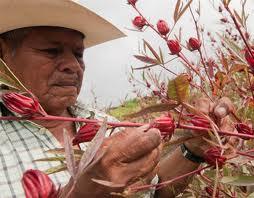While the general level of violence has remained constant over the past few weeks, the apparent targeting of grassroots activists has increased dramatically over the month of December. This targeting should remind us that political violence, and not just organized narco-based criminality, still drives a good deal of the violent instability that afflicts broad geographical swaths and certain social sectors in Mexico.
Corrupt and authoritarian politics and out-and-out criminality have a tendency to blend, of course, especially when large sums of money are available to grant impunity to certain private citizens. Over the past three weeks, for example, Mexicans have witnessed a number of deliberate attacks—whose deliberate foretelling was conspicuously ignored by state authorities—on political activists. The attacks, their open foretelling, and the official disregard of numerous death threats received by the victims (in one case the open police collaboration with kidnappers), all point to a common motive: the advertisement of impunity.
 The most prominent attacks have been against members of Javier Sicilia’s Movement for Peace with Justice and Dignity, a group that has sought non-violent alternatives to the fight against organized crime: the murder of Trinidad de la Cruz Crisótomo (well known as Don Trino), a 73-year-old campesino leader of a movement to recover communal lands; the murder of Nepomuceno Moreno (Don Nepo), a working-class activist seeking the whereabouts (or remains) of his son, kidnapped last year by the state police of Sonora; the attempted murder of Norma Andrade (who survived the attack despite receiving five gunshot wounds), the founder of Nuestras Hijas de Regreso a Casa (Bring Our Daughters Home) a group formed to end the decades-old cycle of seemingly random murders of women in Ciudad Juárez; the kidnapping of campesino activists Eva Alarcón and Marcial Bautista as they traveled through the state of Guerrero.
The most prominent attacks have been against members of Javier Sicilia’s Movement for Peace with Justice and Dignity, a group that has sought non-violent alternatives to the fight against organized crime: the murder of Trinidad de la Cruz Crisótomo (well known as Don Trino), a 73-year-old campesino leader of a movement to recover communal lands; the murder of Nepomuceno Moreno (Don Nepo), a working-class activist seeking the whereabouts (or remains) of his son, kidnapped last year by the state police of Sonora; the attempted murder of Norma Andrade (who survived the attack despite receiving five gunshot wounds), the founder of Nuestras Hijas de Regreso a Casa (Bring Our Daughters Home) a group formed to end the decades-old cycle of seemingly random murders of women in Ciudad Juárez; the kidnapping of campesino activists Eva Alarcón and Marcial Bautista as they traveled through the state of Guerrero.
The response of campesino, ecological, and human rights activists to the assaults of the past three weeks has been to strengthen their resolve and rev up the struggle on its multiple fronts. They have not been defeated. Another lesson of the past few weeks is that no fight against organized crime can succeed as long as private citizens can buy impunity from the state. That is where the most important struggle lies.
For more from Fred Rosen's blog, "Mexico, Bewildered and Contested," visit nacla.org/blog/mexico-bewildered-contested. See also the May/June 2011 NACLA Report "Mexico's Drug Crisis," or NACLA blogs, Border Wars and Traffick Jam, for more on the U.S.-Mexico border or drug trafficking in the region.

